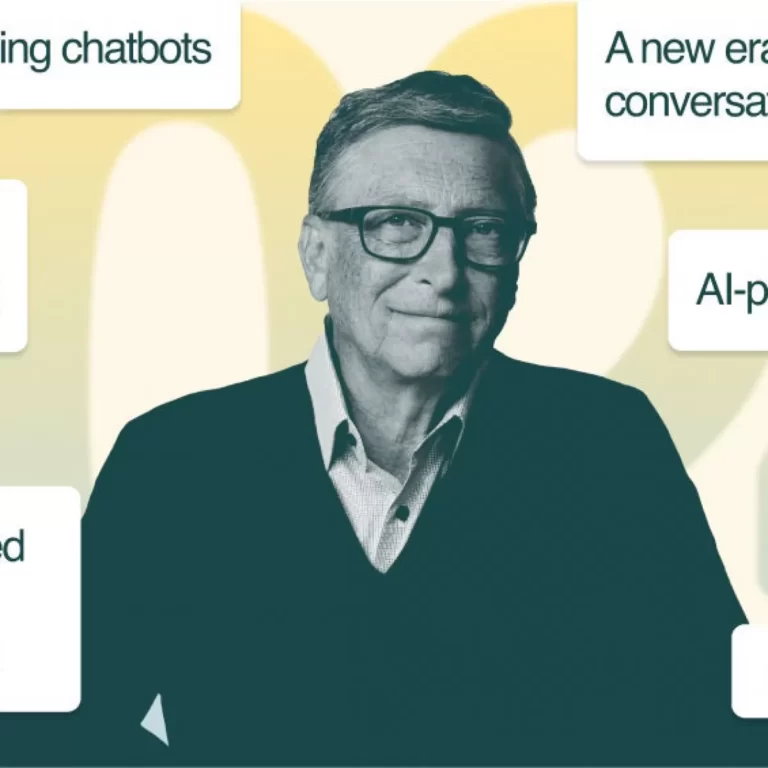
Estimated reading time: 5 minutes
According to Microsoft co-founder and philanthropist Bill Gates in his year-end conference, the use of artificial intelligence applications by the general population in developed countries such as the United States to a “significant” extent will begin in the next 18-24 months . letter published last week.
The impact on things like productivity and innovation could be unprecedented, Gates says.
“Artificial intelligence is about to accelerate the pace of new discoveries at a rate never seen before,” Gates wrote on his blog.
Gates, part of the Gates Foundation he founded with Melinda French Gates, focused his remarks in the letter on the uses of artificial intelligence in developing countries.
“A key priority of the Gates Foundation in the field of artificial intelligence is to ensure that these tools also address health problems that disproportionately affect the world's poorest, such as AIDS, tuberculosis and malaria,” Gates wrote.
Gates cites multiple applications of Artificial Intelligence in different countries, while stressing that practical implementation will not happen this year but in the final years of this decade.
Plus: These 5 Major Tech Advancements of 2023 Were the Biggest Game Changers
“The work that will be done in the coming year is setting the stage for a massive technology boom by the end of this decade” through artificial intelligence, Gates wrote.
Developed for uses in education and fighting disease cited by Gates in his letter include:
Gates places particular emphasis on AI applications that are being developed in their respective countries and which will presumably be more in tune with the realities of those countries. For example, voice input in Pakistan's health records app corresponds to the common practice of people sending voice messages on mobile devices rather than typing them.
“We can learn a lot from global health about how to make AI more equitable. The main lesson is that the product must be tailored to the people who will use it,” Gates wrote.
Gates predicts that the developing world will not be far behind the developed world in seeing the adoption of AI applications:
If I had to make a prediction, in high-income countries like the United States, I would say we are 18-24 months away from significant levels of AI use among the general population. In African countries, I expect to see a comparable level of usage in about three years. It's still a gap, but it's much shorter than the lag times we've seen with other innovations.
Ercole Palmeri
Developing fine motor skills through coloring prepares children for more complex skills like writing. To color…
The naval sector is a true global economic power, which has navigated towards a 150 billion market...
Last Monday, the Financial Times announced a deal with OpenAI. FT licenses its world-class journalism…
Millions of people pay for streaming services, paying monthly subscription fees. It is common opinion that you…